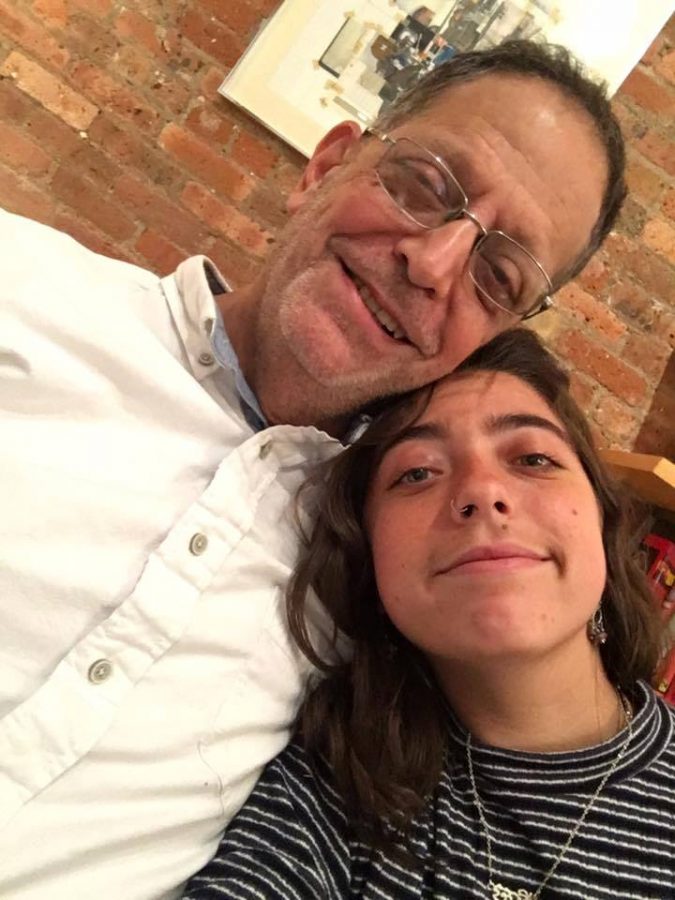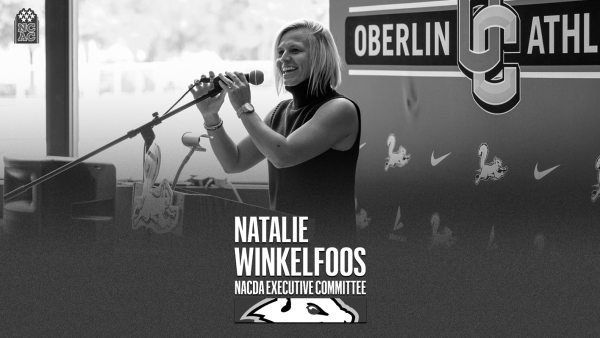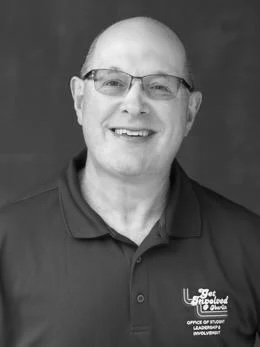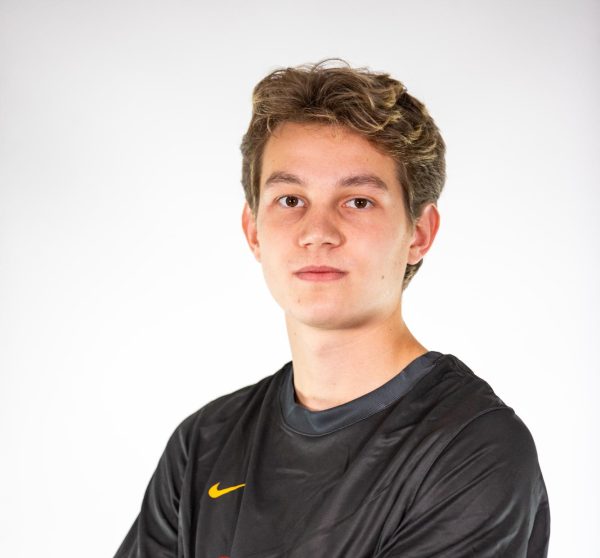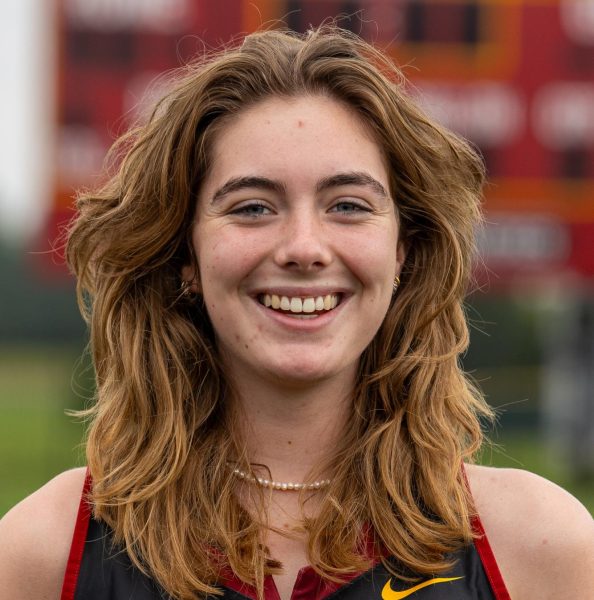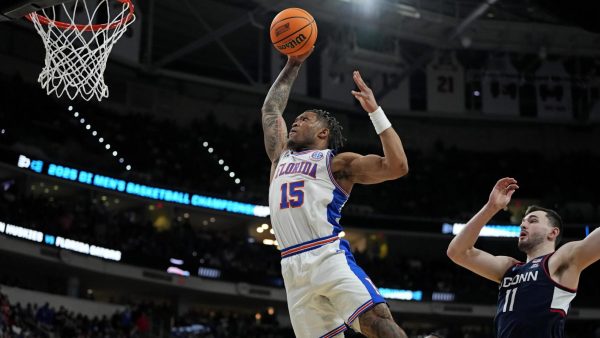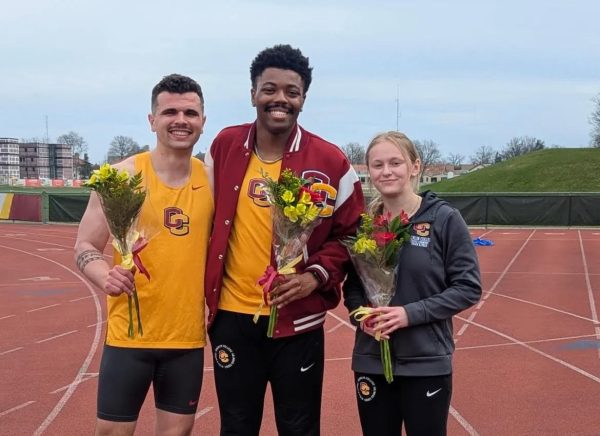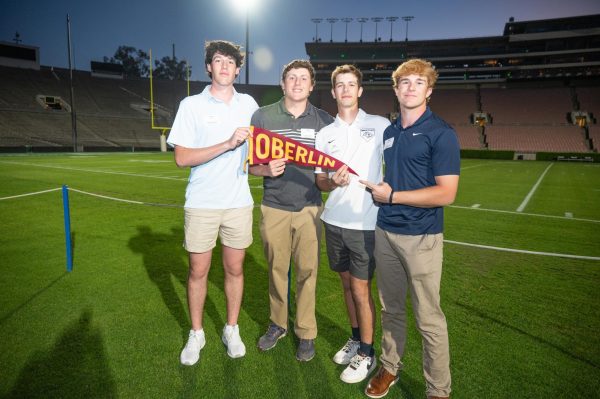In The Locker Room with Julie and Jay Schreiber, Sports Editors
Photo Courtesy of Julie Schreiber
Jay Schreiber (left), Deputy Sports Editor of The New York Times, and Julie Schreiber, Sports co-editor of The Oberlin Review.
This week, the Review sat down with Julie and Jay Schreiber. The father-daughter tandem has spanned the sports journalism world, with Julie as Sports Editor for the Review itself and Jay working at The New York Times for 26 years, serving as the Deputy Sports Editor for the last four. As Julie prepares to spend a semester in Cuba next spring and Jay prepares for retirement, the two took some time to reflect on their careers thus far.
This interview has been edited for length and clarity.
How did your career in sports journalism begin?
Julie: I always really enjoyed writing. In middle school, we used to have these essay writing competitions that were kind of their own type of journalism. We had to write a narrative about our past semester. I would win those competitions a lot, so my middle school teacher told me when I got to high school, I should keep writing and that I should write for the newspaper. My dad was ecstatic about that. Every day in junior and senior year of high school he would drive me to school at 6:45 in the morning, and we would stop and get coffee and talk about the paper. He tried not to force it on me, but in the morning — in the car, almost every day — he would say, “You know Julie, I know you like field hockey and other stuff, but if you wanted to quit everything and just focus on the newspaper, that would be fine.” He would always want to talk to me about pitches, ideas, and ledes. He would want me to profile certain people in the school and go to all these events around town. Then all of my writing carried over into college, because it’s the only thing that I’ve ever been able to visualize myself doing. I mean, our last name means “writer.”
Jay: Well, it didn’t begin right away, because I’ve been doing this for 44 years, and I’m about to stop. Almost the first half of it, I worked on the news side. When I was still starting out, I covered municipalities — anything from crime to fires to big disputes about housing developments — and I eventually went to the Daily News, where I spent pretty much a decade working almost always on the news side, not sports. I used to help out Sports with headlines for their back page because I was a well-known headline writer. I was a sports fan, so they would ask me for help. They would say to me, “Two words, Jay. We need two words,” because that’s all that would fit on the back page. But I was not a sports editor, per se. But then, when I had a chance to get to The New York Times, the opening was in sports, and it was a chance to come to the Times. The sports editor had heard about me and reached out to me, and I was a big sports fan, so I said, “fine.”
I came in not knowing that I was going to stay in sports, but I started moving up. I became the Weekend Editor, then the Day Time Assignments Editor, and then eventually the Deputy Sports Editor. Here I am almost 27 years later, and I never left sports. I like sports. It’s a little looser, a little more camaraderie. You can have a little more fun or be irreverent. It’s not life or death — when a team loses, it feels like life or death, but really it isn’t.
Obviously The New York Times is one of the largest publications in the world. What are some opportunities you got from working for such a renowned newspaper that you may not have gotten somewhere else?
Jay: The biggest opportunity at The New York Times is that it is always challenging you. We’ve certainly changed over the years. At other papers, sports can be very formulaic. You write a story in advance of a game, you write a story about the game, you write a story after the game. I think it’s very predictable and traditional. I’m not saying everybody. There’s some very great sports journalism, not just us, but I think the best part about the Times is you meet a lot of really smart people that think a little differently than you. So you learn to think, and you’re challenged to look at things. It forces you to stay on your toes, so you’re not doing the same thing year after year. I don’t want to sound like a snob, but some sports journalism is like that. It can be a comfort for fans, because it’s what they know and have come to expect. They’re fine with it. We run into problems because we don’t cover New York teams as much as we used to, and that’s created some pushback from some New York sports fan readers.
Do you have any career highlights that you’d like to share?
Jay: One memory that’s definitely going to stick with me was when the women’s national team won the World Cup on a Sunday night back in 2015. I was not working, but I came in to work as a backup Weekend Editor. The U.S. beat Japan to win it, and I just said, “Hey, let’s just blow this thing out.” We put it on page one of the paper, and we gave three pages inside to the women. I was very proud of that. I think it made a real impact. We covered soccer a lot, but I don’t think people were ready for us to give three whole pages to the women’s team. Half our sports section went to the women winning the World Cup, which is a big statement.
My other baseball memory will be the Chicago Cubs finally winning a World Series, but of course it wasn’t easy. It was Game Seven, they were up in the eighth inning, and blew it. It goes to extra-innings and there’s a rain delay. Now it’s one o’clock in the morning and they find a way to finally win it. Rare in these days, we held the paper — we stopped the presses — and we actually published in the paper on the front page that the Cubs finally did it. At two in the morning we had four or five people that were going to sit there, drenched in champagne, and write their sub-stories — get their quotes. Then the Night Editor, one Copy Editor, and I said, “This is history, so let’s stay here and get this done,” so by the time we got the sub-stories it was too late to put it in the paper. We ended up finishing around five in the morning, and then at that point, I figured I might as well just take the first train home to where we live in New Jersey. I got on the first train at 5:30, which is usually, as I found out, mostly nannies going to work. Who else is leaving the city to go to work at five in the morning other than baby-sitters going to take care of kids in the suburbs? So it was me and, like, 80 nannies on the train.
In 2007 to 2009, I did a lot of investigative baseball drug editing with a very young writer who had actually been a news clerk, so he had just taken off, and his name is Michael Schmidt. We did great together. Michael was the one breaking all of these stories, and he really got all these scoops. He did great. It was really an intense couple of years working with him day and night, all the time. That’s when my girls really got into it, because he would call the house all the time. Now, of course, he’s a huge investigative reporter. He’s gone to cover the war in Iraq. He covered the FBI, the military. Now, he’s one of the most prominent investigative reporters involved in the Trump-Russia investigation. He’s on the nightly news shows all the time. It’s fun for the whole family now when Schmidt’s breaking a story. We were at Thanksgiving when a story broke about Michael Flynn and Trump, a huge story. I said, “Let me see that,” and it was Schmidt.
What was it like having your daughter join the sports journalism world when she became a Sports Editor in August?
Jay: Scary, because knowing that her sister is getting into radio journalism, they’re both into journalism. It would be much nicer if they were both into engineering, right? I think that’s what their mom wishes, because journalism is a tricky field. I’m proud of her. It started out with just being sports fans. I didn’t push Julie to get into journalism, but she likes to write, and it just became a natural thing to do. If you like to write and are interested in what’s going on in the world, journalism becomes the natural thing to do. Getting into journalism isn’t getting into the world I did. It’s changing into a world of websites now. It’s cool, though, especially because I feel like she found her own way there. I keep reminding [Julie] though, law school’s always an option.
Julie, have you gained any new perspectives on your father’s profession after working for the Review?
Julie: First of all, having this job makes me understand why he’s so tired all the time, but it also shows me how he sees the world through different potential stories. He’s always looking for really interesting scoops and interesting ways to tell stories. He would never just write a game recap, but he would pick a really quirky athlete and profile them, or find a funny theme or pattern between games or teams.
Also, recently — since he’s about to retire — a lot of his colleagues have spoken to me about how much he’s contributed to the department, and they don’t know what they’re going to do without him. I know he’s good at his job, but I always figured he was kind of like the old guy that was there for comic relief. It’s clear to me now, though, that he played a huge role in the sports department. He gave a lot of time and effort, and creativity and consistency. That has been awesome to hear about from so many people.
Do you think you’ll continue to pursue sports journalism once you get back from Cuba or after you graduate?
Julie: Definitely while I’m still here, because sports are such a big part of my life at Oberlin. I think of pursuing a career in sports journalism. There’s a columnist for The New York Times that my dad works with that does essentially what I want to do if I got to work there. She gets to write about the sports that interest her, and she likes to write about her own family a lot and her own experiences. Her name is Juliet Macur. She actually wrote a column about her dad when he passed away about how he helped create her love of sports, and I read it, like, every day because it reminds me about my relationship with my dad.


